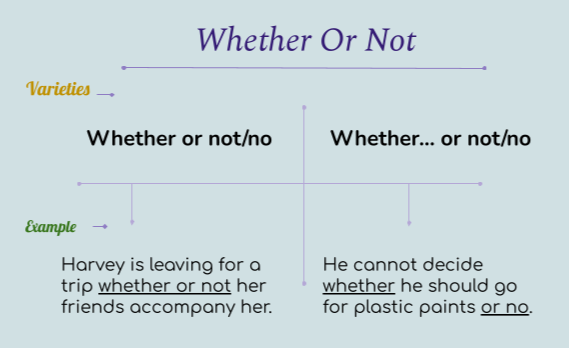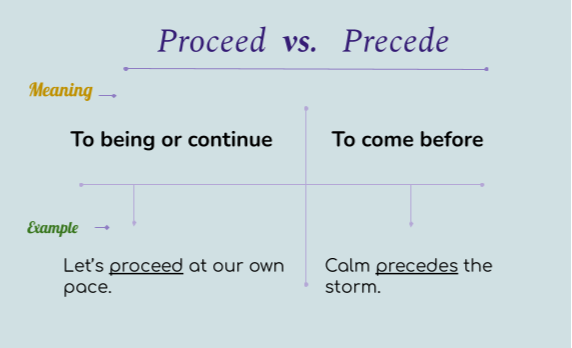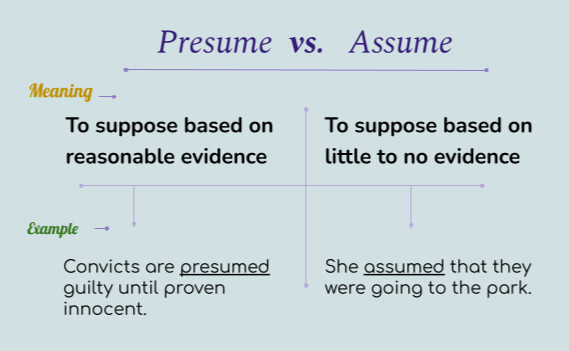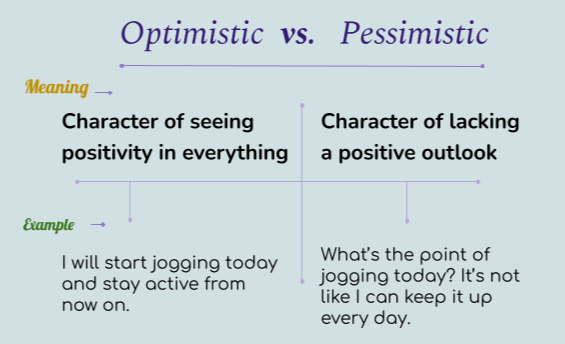Connotation vs. Denotation - Clear the Confusion
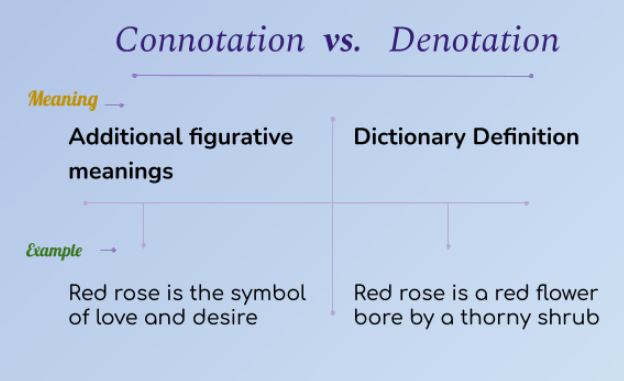
Connotation and denotation are two types of meanings assigned to the same word. Denotation is the standard definition of a word and connotation is the addition of figurative aspects attached to the dictionary definition depending on historical, literary or mere situational contexts that stuck. The confusion is to remember which one is which, mostly because of their phonetic similarities.
Denotation
The literal meaning of a word is termed denotation. Denotations are dictionary definitions entailing precise meanings and traditionally accepted definitions of words or signs.
Social Media
The dictionary definition of the word refers to the websites or applications that enable social networking and fast sharing of digital content. This is the denotative meaning.
Ice
It denotes the meaning of the solid or crystallized form of water achieved by lowering the temperature to its freezing point.
Connotation
The figurative meanings or interpretations of a word or phrase are termed as connotations. These are usually additional meanings attached to the words based on the emotions and feelings of the writers and readers.
Substance abuse
Abusing any substance could be termed as “Substance Abuse” but based on its popular use, it exclusively means abusing drugs and illegal substances.
Team player
An individual playing team sports is naturally a team player by definition but common usage of the term has shifted its meaning to be anybody who functions well within a team be it in sports or any other profession where teamwork is necessary.
Connotations come into being as an additional layer of meaning that is attached to the common dictionary definition as per emotions and feelings aroused. So, thinking of connotations in a vacuum is hard but we often do it anyway. For example, “Substance abuse” has been used to mean “Drug addiction” for so long that we often forget to figure out its denotative meaning before getting to its connotative one.
Confusion: Denotation vs. Connotation
Let’s look at the denotative and connotative meanings of the same word and see how they differ in sense and implementation in the English language -
Red rose
Denotation: The dictionary denotes it to be a beautiful red flower bore by a thorny shrub widely grown for ornamental purposes.
Connotation: Plenty of connotations have been attached to these flowers based on their colors and usage on celebratory occasions. As for the red rose, its use as a gift on romantic occasions has made it out to become a symbol of love and desire. Its variety of connotative meanings is then popularized by authors and poets with their similes and metaphors.
The major confusion comes in while determining which one is the connotative meaning and which one implies the denotative one. Most people confusing these two terms know how they differ yet often assign the wrong label to the right kind of meanings or definitions. One way to solve this dilemma can be to focus on the “D” in the word “Denotation” and “Dictionary definition” for ease of remembering. Connotation can be assigned to every other aspect where the sense is to spread the horizon of standardized definitions of words.
|
Factors |
Denotation |
Connotation |
|
Meaning |
Dictionary definitions |
Additional figurative meanings |
|
How does it manifest? |
Traditionally established |
Adopted interpretations |
|
Common use |
Mostly in normal situations |
Deeper sense, literary use |
|
Uncommon use |
Standard procedure to use across every situation |
Some like to use connotations in daily speech |
Grammar
Read More
- How to Use "Therefore" in Sentences Avoiding Common Mistakes
- How to Use "Whereas" with Examples and Avoid Common Mistakes
- When and How to Use "Thus" Correctly Without Common Mistakes
- How to Use "On the Contrary" Properly with Meaning and Examples
- When and How to Use "Either/Or" with Examples and Common Mistakes to Avoid
- How to Use "On the Other Hand" Effectively without Mistakes
- How to Use "Respectively" with Example and Common Errors to Avoid
- How and When to Use "Moreover" Without Mistakes
- How to Use "Likewise" in Sentences Based on Context & When not to Use
- When & How to Use "Although" in Sentences to Avoid Mistake


